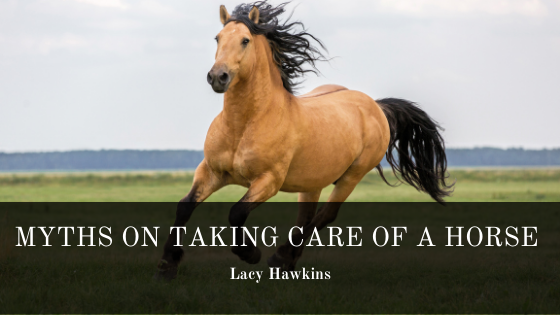Caring for a horse is extremely rewarding. The task is also an ongoing learning experience. It is not unusual for novice equine owners to hear various horse husbandry myths relayed by old-timers that have been dispelled or debunked for decades. Learning about some of these falsehoods in advance saves horse enthusiasts’ expense, time, and worry.
Grain Causes Colic
As with other animal species, horses require a balanced diet. A diet consisting of too much grain may cause potentially hazardous issues in their complex digestive tract. The sugar and starch contained within grains may cause equine colic if fed disproportionately to physical activity. The amount of grain must also be balanced with quality hay or pasture grazing and a permanent water source.
Excess Protein Leads to Behavioral Problems
Many believe that feeding a horse grain, which increases protein levels, causes the animals to become rambunctious and harder to handle. The myth is similar to the old wive’s tale that sugar makes children hyperactive. A horse’s behavior is a combination of diet, environment, and genetics, all play a role in each animal’s temperament and personality. The carbohydrates that grains provide may increase cortisol levels in some horses, which may lead to altered behavior. On the other hand, the lack of protein provided by an unbalanced diet often leads to dull behavior that is mistaken for a calm demeanor—correcting the problem perks the animal up as they experience better health.
Water After Activity Causes Colic
Horse owners once held the belief that allowing a horse to drink after activity led to colic. But, dehydration and exhaustion are factors that pose a risk. After a day out on the trails or a workout in the arena, horses need to cool down. During extremely warm environmental conditions and physical activity, horses often sweat, which causes abnormal electrolyte loss. Not allowing the animal to replenish fluids worsens dehydration. By drinking, the fluid removes lactic acid while normalizing body temperature, heart, and respiratory rates.
Horses Need Blankets in Winter
Under normal conditions, a healthy horse develops a winter coat that adequately protects the animal from the elements in temperatures down to -40 degrees Fahrenheit. The animals must also receive an adequate diet, plenty of water, and a place to shelter when desired. Blanketing may lead to sweating and various skin issues.
